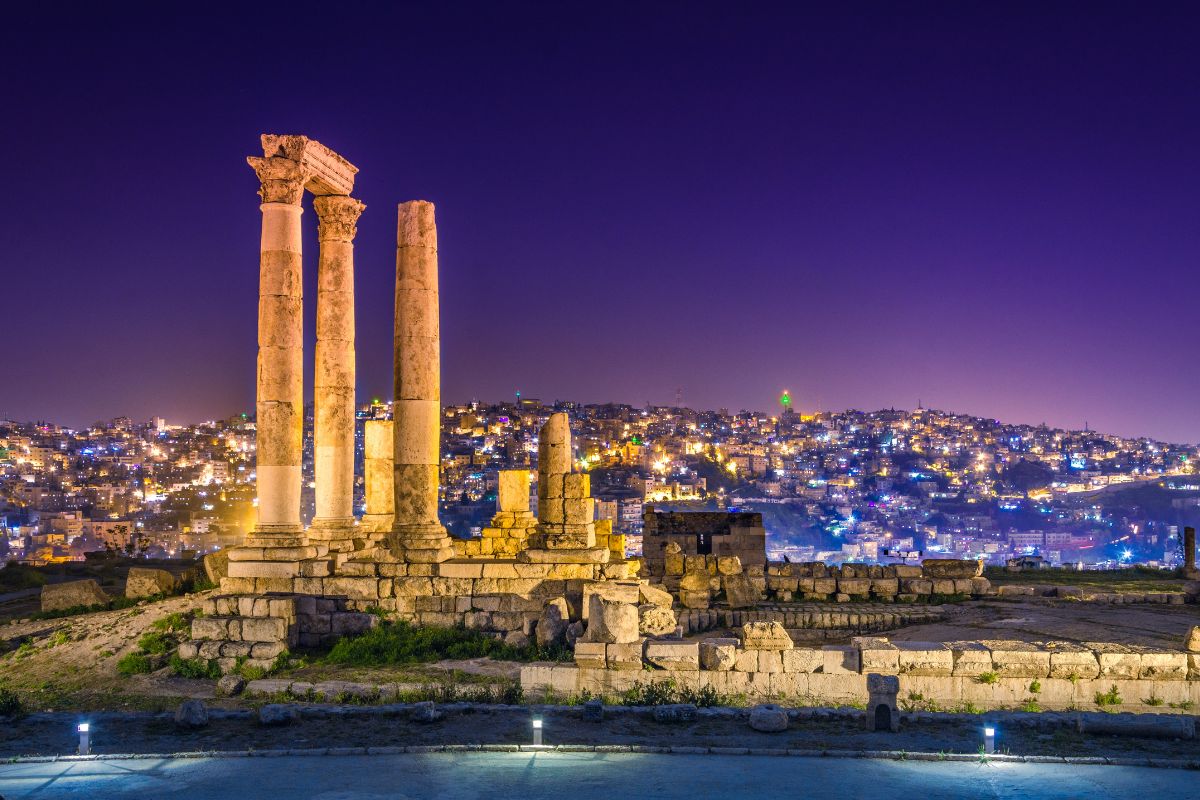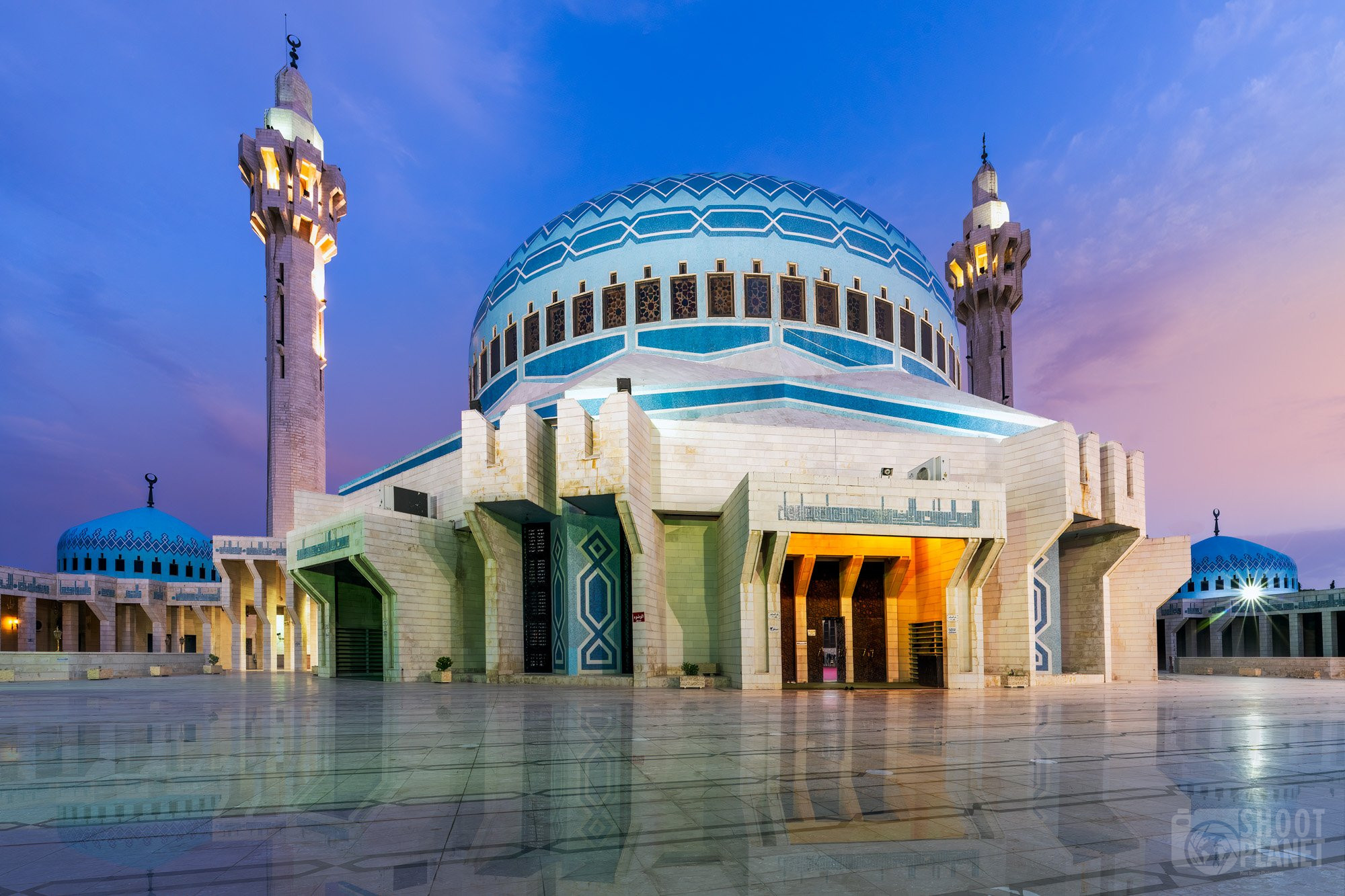



Amman, the capital of Jordan, is a modern city with numerous ancient ruins. Atop Jabal al-Qala’a hill, the historic Citadel includes the pillars of the Roman Temple of Hercules and the 8th-century Umayyad Palace complex, known for its grand dome. Built into a different downtown hillside, the Roman Theater is a 6,000-capacity, 2nd-century stone amphitheater offering occasional events. ― Google
Spring (March–May) and autumn (late September–November) are ideal—mild temps (20–25 °C), minimal rain, and perfect for exploring
Summer can be hot (30–35 °C), while winter (December–February) is cooler (5–12 °C) and suitable for indoor cultural experiences.
Most travelers fly into Queen Alia International Airport (AMM), about 30 km south of central Amman.
Options from the airport:
Taxi/cab-share – fixed fares (~20 JOD, ~$28).
Airport shuttle/bus – to city center.
Car rentals – available at the airport, ideal for exploring beyond the city.
Amman Citadel – a hilltop archaeological site with Temple of Hercules, Umayyad Palace, Roman foundations, and the Jordan Archaeological Museum .
Roman Theatre & Folklore Museum – a 6,000-seat theatre next to the Jordan Folklore Museum that showcases traditional cultural artifacts .
The Jordan Museum – home to Dead Sea Scrolls and ancient statues; ideal for history fans.
Darat al Funun & Jabal Weibdeh – creative hub with galleries, art spaces, and murals .
Souk Jara & Rainbow Street – seasonal market (May–Sept) with crafts and food, plus cafes and nightlife .
Downtown (Al Balad) – authentic souks, street life, pigeon & bird market, and historic alleyways .
King Hussein Mosque – largest mosque in Jordan with adjacent Prophet Mohammad Museum .
Day trips nearby – Mt. Nebo, Madaba, Jerash, and the Desert Castles like Qasr Amra .
Wander the ancient rues of Citadel and Roman Theatre at sunset .
Browse local life at Friday Market and pigeon auctions .
Enjoy art tours through Darat al Funun and street murals .
Attend cultural festivals: Amman Film Festival (July/Aug), Jerash Festival (July), Petra Marathon (Sept), etc. .
Take a cooking class like Beit Sitti to learn Mansaf and Levantine dishes.
Recommended neighborhoods:
Downtown/Al Balad – best for local vibe and walking.
Jabal Weibdeh or Rainbow Street – artsy, cafe-lined, mid-range.
Circle areas (1st, 2nd, 3rd circle) – mix of homey guesthouses with good access .
Options range from hostels (e.g., Nomad, Cliff Hostel ~5–12 JOD/night) to boutique and mid-range hotels
Mansaf – Jordan’s national dish (lamb, rice, jameed yogurt) best tried authentically .
Falafel & hummus – street favourites at Hashem, Falafel al Quds on Rainbow Street, and Falafel Al Quds downtown .
Kunafeh & sweets – Habibah Sweets, Zalatimo, Beside Bekdash for ice cream .
Local breakfast – Dar Nemeh for a homemade spread overlooking Citadel .
Arabic coffee – “Abu Saleh” booths serve authentic gahweh
Amman blends ancient civilizations—Roman, Byzantine, Umayyad—with modern arts and café culture .
Hospitality is central: communal meals and fresh ingredients are cultural staples .
The city is creatively dynamic: art biennials, mural tours, and galleries in Jabal Weibdeh reveal a young, vibrant scene .
Markets—from souks to bird markets—offer insight into daily life and traditions .